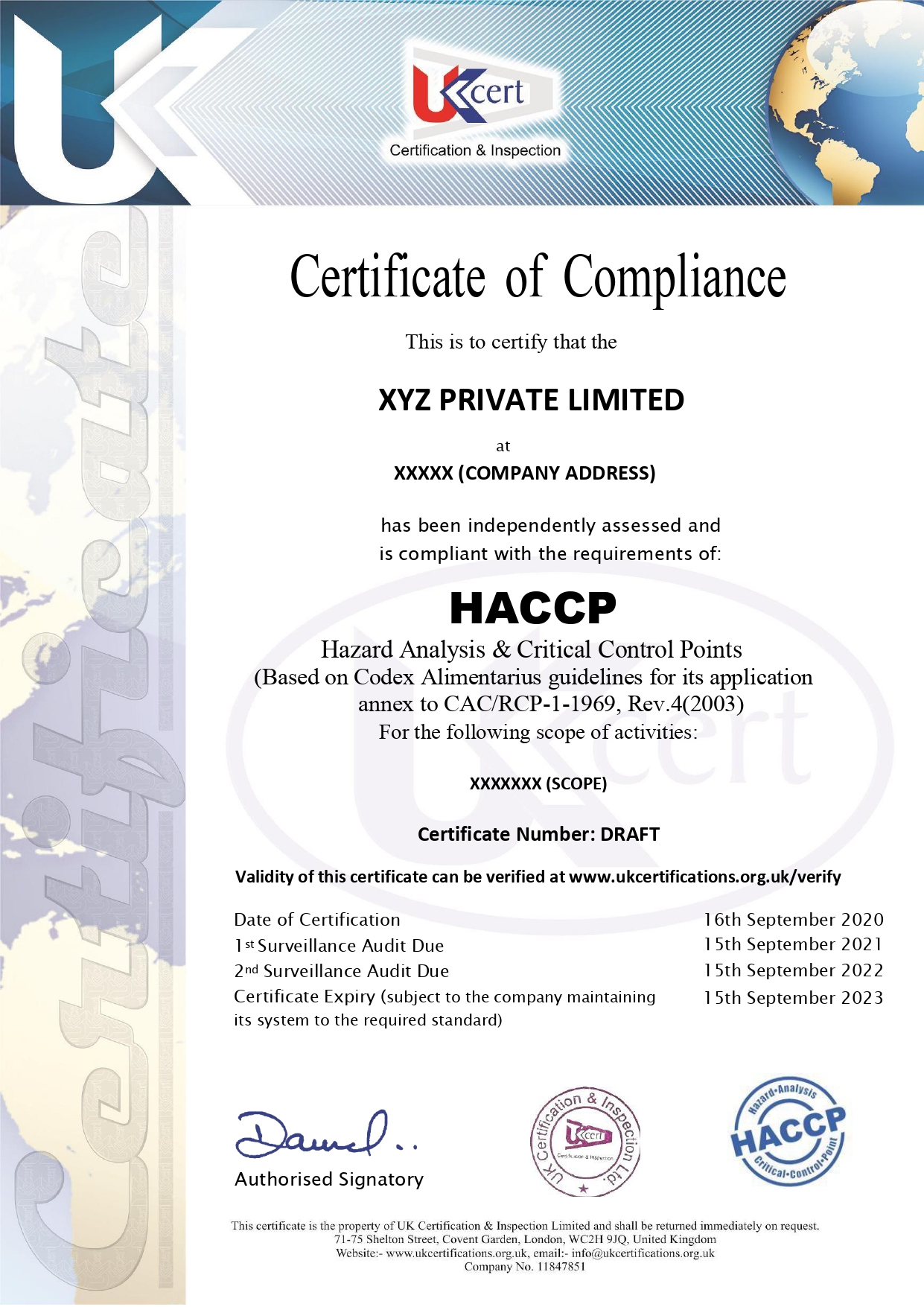
HACCP (Hazard Analysis and Critical Control Points) Certification is an internationally recognized standard for food safety management. It focuses on identifying and controlling potential hazards in food production, ensuring the safety and quality of food. A Non-IAF HACCP Certification is issued by certification bodies that are not accredited by the International Accreditation Forum (IAF), providing more flexible certification requirements while aligning with HACCP principles.
HACCP Certification helps organizations implement food safety protocols, preventing contamination and ensuring the safety of their food products.
Certification demonstrates a commitment to food safety, giving customers confidence in the quality and safety of the food products they purchase.
By following HACCP principles, businesses can meet food safety regulatory requirements, reducing legal and compliance risks.
A HACCP certification enhances a business's reputation, making it more attractive to clients who prioritize safety in food products.
There are two primary types of HACCP Certifications:
FilingLounge.com provides a streamlined HACCP certification process. Here’s an overview of the steps:
HACCP certification ensures organizations identify and control food safety hazards, reducing the risk of contamination.
Certification builds consumer trust, as they know the food products are produced under rigorous safety protocols.
HACCP certification helps businesses meet regulatory requirements, reducing the risk of penalties and compliance issues.
HACCP certification requires comprehensive documentation of food safety processes, which can be challenging for businesses unfamiliar with HACCP principles.
The certification process may require significant resources, especially for small and medium-sized businesses.
Organizations must meet specific criteria to be eligible for HACCP Certification, such as implementing a formalized food safety management system and documented procedures for hazard analysis.
HACCP certification typically requires periodic renewal to ensure continued compliance with food safety standards, often through follow-up audits.
Internal audits are essential for maintaining HACCP compliance, helping organizations identify areas for improvement in food safety management and preparing for the certification audit.
After certification, organizations should conduct regular internal audits, keep documentation up-to-date, and make continuous improvements to their food safety processes.
HACCP Certification enables organizations to enhance food safety, ensure regulatory compliance, and build trust in the marketplace. FilingLounge.com simplifies the certification process, allowing businesses to focus on core operations while achieving HACCP compliance.